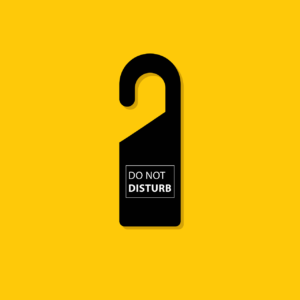
Welcome to the wild ride of academic writing! If you’re here, you’ve likely dived headfirst into the exhilarating (and sometimes exhausting) world of dissertations and research papers. But let’s be real – while the initial writing can feel like a creative rush, the revision process often feels like you’re running a marathon with no finish line in sight. Yet, revisions are where the magic happens, transforming your raw ideas into a polished masterpiece that shines with clarity and coherence.
Revisions are crucial because they allow you to refine your arguments, tighten your structure, and catch those pesky errors that can undermine your credibility. Think of revisions as the final touch-ups on a painting; they bring out the brilliance and depth of your work, making it stand out in the academic crowd. However, the editing process can be overwhelming. Common challenges include dealing with an avalanche of feedback, maintaining motivation, and knowing when to stop tweaking and start finalizing. But what if we told you that revisions don’t have to be a dreaded chore? What if you could actually look forward to editing sessions and find joy in the process? Enter the concept of making revisions fun and manageable. It’s all about shifting your mindset and employing strategies that turn tedious tasks into engaging activities!
In this blog post, we’ll explore how to tackle neverending edits with a smile on your face and a spring in your step. From setting up a productive environment to breaking down edits into manageable sections, and leveraging professional help and technology, we’ve got you covered.
Understanding the Revision Process

Revisions might seem like a daunting task, but they are where the real magic happens in academic writing. It’s during this phase that your work transforms from a rough draft into a polished, compelling masterpiece. Let’s break down the purpose and stages of revisions, differentiate between macro and micro edits, and explore the importance of feedback from peers and professionals.
Defining the Purpose and Stages of Revisions
Revisions are essential for fine-tuning your work, ensuring your arguments are clear, your structure is solid, and your overall message is persuasive (Haag, 2021). The goal is to elevate the quality of your writing, making it not just accurate but also engaging and impactful. Here’s a quick rundown of the key stages in the revision process:
- Content Revision (Macro Edits): This stage is all about the big picture. You’ll be looking at the overall structure and flow of your work. Ask yourself if your arguments are well-supported and logically presented. Are there gaps in your research? Do all sections of your paper align with your thesis? This is your chance to make significant changes to ensure your paper is coherent and compelling (Lindgren & Sullivan, 2006).
- Structural Revision: Once you’re confident with your content, focus on the organization of your paper. Ensure each section flows logically into the next, and your arguments build on each other effectively. This stage is about clarity and coherence, making sure your reader can easily follow your line of thought.
- Line Editing (Micro Edits): Now it’s time to zoom in on the details. This involves refining your sentence structure, improving word choice, and ensuring your writing style is consistent. Line editing enhances the readability of your work, making it more engaging and precise (Lindgren & Sullivan, 2006).
- Copy Editing: The final polish. This stage involves checking for grammar, punctuation, and spelling errors. Copy editing ensures your paper is free of distracting mistakes and meets academic standards for presentation.
Pro Tip: After receiving feedback, take a short break before diving back into revisions. This allows you to return with a fresh perspective, making it easier to implement suggestions effectively and spot areas for further improvement.
Revisions may seem like an endless cycle, but by breaking them down into manageable stages and seeking feedback, you can tackle them effectively (Pyrczak, 2021). Remember, revisions are where your work truly comes to life, transforming from a rough draft into a polished, compelling piece of academic writing. Embrace the process, and you’ll find that revisions can be both rewarding and, dare we say, fun!
Differentiating Between Macro and Micro Edits
Understanding the distinction between macro and micro edits can streamline your revision process. Macro edits focus on the big-picture elements of your paper. This includes your thesis statement, the logical flow of arguments, and the overall structure. During macro edits, you might find yourself moving paragraphs, adding new sections, or significantly rewriting parts of your paper to improve clarity and coherence. For example, during a macro edit, you might realize that your introduction doesn’t effectively set up your main argument. You might need to rewrite it to better capture the reader’s attention and clearly outline your thesis.
Micro edits, on the other hand, deal with the finer details. This includes sentence structure, word choice, and grammatical accuracy. Micro edits are about polishing your language to enhance readability and ensure precision. For instance, you might notice that some of your sentences are overly complex or that certain words are repeated too often. Micro editing helps you streamline your prose, making it more engaging and easier to read. Both types of edits are crucial. Macro edits ensure your paper’s foundation is strong, while micro edits provide the finishing touches that make your work shine!
Importance of Feedback from Peers and Professionals

No matter how meticulous you are, it’s challenging to identify all the weaknesses in your own work. This is where feedback from peers and professionals becomes invaluable.
- Peer Feedback: Your peers can offer a fresh perspective on your work (Hounsell, 2021). They can point out confusing areas, suggest new ideas, and provide moral support. Peer feedback is especially useful for gauging how well your arguments hold up and whether your writing is clear and engaging.
- Professional Feedback: Engaging with professional editors or dissertation consultants can take your revisions to the next level. Professionals bring a wealth of experience and an objective eye to your work. They can provide detailed, constructive feedback on both macro and micro levels. For instance, an editing service can help you refine your argumentation, improve clarity, and ensure consistency throughout your dissertation. Tip: Reading dissertation editing services reviews can help you find a reputable professional to guide you through the revision process.
Feedback is not just about fixing mistakes; it’s about gaining new insights and perspectives that can significantly enhance the quality of your work. By embracing feedback from both peers and professionals, you can ensure your revisions are thorough and your final paper is of the highest quality.
Setting Up a Productive Environment

Working on the revision process requires more than just determination; it calls for a conducive environment that fosters productivity and creativity. Let’s dive into tips for creating an ideal workspace, explore essential tools for efficient editing, and discuss how to eliminate distractions to keep your focus sharp.
Find Your Perfect Productivity Nook
Your workspace can significantly impact your ability to concentrate and work efficiently. Picture this: you’re trying to revise your dissertation on the couch, but your dog keeps nudging you for attention, and the TV is blaring in the background. Not exactly conducive to deep thought, right? Instead, choose a dedicated spot for your work, preferably away from your relaxation areas. This physical separation helps signal to your brain that it’s time to focus.
Investing in a comfortable chair and a desk at the right height is crucial. I once knew a student who spent hours working on her kitchen counter, only to end up with chronic back pain. Good ergonomics prevent discomfort, allowing you to work longer and more comfortably. Lighting is another key factor. Ensure your workspace is well-lit, preferably with natural light, but a good desk lamp can also do wonders. Proper lighting reduces eye strain and helps maintain alertness. Keep your essential tools within arm’s reach. An organized desk minimizes the time spent searching for items and maximizes productivity. Adding personal touches like plants, photos, or inspirational quotes can make your workspace more inviting and boost your mood.
Supercharge Your Edits with the Right Tools
Having the right tools can transform your editing process. Take it from a client of mine who discovered Scrivener during his doctoral program. This tool was perfect for managing his large projects, allowing him to organize research, outline his work, and edit sections individually. Grammarly is a must-have for catching grammatical errors, style issues, and even plagiarism, providing real-time suggestions to improve your writing. Managing references is a breeze with EndNote. It helps organize and format your citations correctly, ensuring adherence to academic standards. The Hemingway Editor highlights complex sentences and common errors, helping you simplify your writing and enhance readability. Pomodoro Timers, such as Focus Booster or Tomato Timer, break your work into intervals (usually 25 minutes), separated by short breaks. This method improves focus and prevents burnout.
Block Out the World: Eliminate Distractions

Even the best workspace and tools won’t help if you’re constantly distracted. Social media and email notifications are major productivity killers. Let people around you know when you’re in work mode. A simple “Do Not Disturb” sign on your door can minimize interruptions. If you’re easily distracted by noise, consider noise-canceling headphones or listening to white noise or instrumental music. Apps like Noisli offer customizable background sounds to enhance concentration.
Taking regular breaks is crucial to maintaining focus. I remember another student who would work for hours without breaks, only to find his productivity plummet. Implementing scheduled breaks made a world of difference. A cluttered workspace can be distracting, so spend a few minutes at the end of each day tidying up your desk. A clean space boosts motivation and makes it easier to dive into work the next day.
Breaking Down the Edits
Tackling revisions can feel overwhelming, especially when faced with a mountain of feedback and corrections. However, breaking down the edits into smaller, manageable parts can transform this daunting task into a series of achievable goals (Pyrczak, 2021). Let’s explore some strategies for making this process more manageable, prioritizing edits, and staying organized with checklists.
Bite-Sized Edits: One Step at a Time
 Imagine trying to eat an entire pizza in one go—it’s not only impractical but also overwhelming. Similarly, attempting to revise your entire dissertation in one sitting is unrealistic. Instead, break down the edits into smaller sections. Focus on one chapter, or even one paragraph, at a time.
Imagine trying to eat an entire pizza in one go—it’s not only impractical but also overwhelming. Similarly, attempting to revise your entire dissertation in one sitting is unrealistic. Instead, break down the edits into smaller sections. Focus on one chapter, or even one paragraph, at a time.
This approach not only makes the task more manageable but also allows you to give each section the attention it deserves. For instance, start with the introduction, perfecting your thesis statement and ensuring it sets up the rest of your paper effectively before moving on to the next section.
Prioritize Like a Pro
Not all edits are created equal. Some changes are critical to the integrity of your work, while others are more minor. Start by prioritizing your edits based on their importance and urgency. Major structural issues, such as reorganizing chapters or addressing gaps in your argument, should be tackled first. These are the edits that will have the most significant impact on your overall work. Once the big-ticket items are out of the way, you can move on to smaller, detail-oriented tasks like fixing grammar and punctuation. Think of it as building a house—you need a solid foundation before you start painting the walls.
Checklists: Your New Best Friend
Staying organized during the revision process is crucial, and checklists can be incredibly helpful. Create a checklist for each section of your dissertation, listing all the edits you need to make. As you complete each task, check it off your list. This not only keeps you organized but also provides a sense of accomplishment as you see your progress. You can create separate checklists for different types of edits, such as structural changes, content revisions, and copy edits. Digital tools like Trello or simple spreadsheet applications can help you keep track of your checklists and make adjustments as needed.
Incorporating Fun into the Revision Process

Revisions don’t have to be a chore! By injecting some fun into the process, you can turn tedious tasks into engaging activities that keep you motivated. Let’s explore how to gamify the editing process, make the most of collaborative sessions, and turn revisions into a creative, enjoyable activity.
Gamify Your Edits: Turn Work into Play
Who says revisions can’t be a game? Gamifying your editing process can make it more engaging and less daunting. Set small, achievable goals and reward yourself when you meet them. For instance, for every hour you spend editing, treat yourself to a piece of chocolate or a quick break to do something you enjoy.
Create a points system where you earn points for completing different tasks. Maybe fixing a grammatical error earns you one point, while reworking an entire paragraph earns you five. At the end of the week, tally your points and reward yourself based on your score. It could be anything from a night out to a favorite meal. This approach makes the process more dynamic and gives you something to look forward to.
You can also turn it into a challenge by setting timers. Try to see how much you can edit in 25 minutes using the Pomodoro Technique, then take a 5-minute break. Competing against the clock can turn a monotonous task into a fun race against time.
Get Creative: Make Revisions an Art Form
Revisions can be a creative process, not just a technical one. Use colorful sticky notes to mark sections that need attention, making your workspace visually engaging. Each color can represent a different type of edit – for instance, pink for formatting errors, yellow for structural changes, and green for new ideas. This visual coding makes it easier to see your progress and what still needs work.
Consider turning your revisions into a storyboard. Lay out the main points of your dissertation on index cards or sticky notes and arrange them on a wall or large table. This hands-on approach can help you see the big picture and how each part fits together, making it easier to identify areas that need reworking. If you’re artistically inclined, doodle or sketch your ideas as you revise. Visual representations of your concepts can stimulate your creativity and provide new insights into how to structure and present your arguments.
Celebrate Your Wins
Don’t forget to celebrate your progress. After completing a major editing milestone, reward yourself with something special. It could be a movie night, a nice dinner, or a day off. Celebrating your achievements, no matter how small, keeps you motivated and reminds you that each step brings you closer to your goal.
Leveraging Professional Help

Revising a dissertation is a monumental task, but you don’t have to do it alone. Leveraging professional help can make the process smoother, more efficient, and less stressful. Let’s explore the benefits of using editing services and academic editing support, and how a dissertation editor can provide valuable insights.
Benefits of Using Editing Services and Academic Editing Support
Engaging with professional editing services can be a game-changer for your dissertation. One of the primary benefits is the expertise that professional editors bring to the table. They have a keen eye for detail and a deep understanding of academic writing standards. This means they can spot errors, inconsistencies, and areas that need improvement that you might have missed.
Editing services can also save you a tremendous amount of time. Instead of spending countless hours poring over your work, trying to catch every mistake, you can rely on professionals to do the heavy lifting. This frees up your time to focus on other critical aspects of your dissertation, like refining your Introduction, bolstering your Literature Review, perfecting your Methodology, analyzing your Qualitative or Quantitative data, and developing your Discussion and Conclusion chapters.
Another advantage is the objectivity that a professional editor provides. When you’ve been immersed in your work for so long, it can be challenging to see it with fresh eyes. An editor brings an outside perspective, helping to identify sections that may be unclear or arguments that need strengthening. This objective feedback is invaluable in refining your dissertation and ensuring it meets the highest academic standards.
Exploring Dissertation Editing Services Reviews to Find the Best Fit

With so many editing services available, finding the right one can be daunting. This is where reviews come in handy. Reading dissertation editing service reviews can provide valuable insights into the quality and reliability of different services. Here are some tips for navigating reviews to find the best fit:
- Look for Detailed Reviews: Reviews that provide specific details about the editor’s performance, communication style, and the quality of feedback are the most helpful. They give you a clearer picture of what to expect.
- Check for Consistency: If multiple reviews consistently highlight the same strengths or weaknesses, it’s likely those aspects are true. Consistent praise for thoroughness, punctuality, and helpful feedback can be a good sign.
- Consider the Reviewer’s Background: Reviews from individuals with a similar academic background or discipline can be particularly useful. They can provide insights into how well the editor understands the specific needs and standards of your field.
- Evaluate the Company’s Response: How a company responds to negative reviews can tell you a lot about their customer service. Look for companies that address concerns professionally and offer solutions.
- Seek Recommendations: Don’t hesitate to ask colleagues or mentors for recommendations. Personal referrals can be incredibly reliable, as they come from trusted sources who understand your academic needs.
Closing Thoughts
Congratulations! You’ve reached the home stretch of your revision journey. Let’s take a moment to recap the key points we’ve covered and leave you with some fun encouragement and an interactive call to action to keep the momentum going.
First off, we dived right into the heart of revising, breaking it down into bite-sized pieces and distinguishing between the big-picture edits and the nitty-gritty details. Tackling the major changes in smaller chunks and focusing on what’s most important can turn a huge task into a series of manageable steps. Every small victory counts!
Then, we talked about creating a productive environment. Whether you’re turning your workspace into a cozy editing nook or arming yourself with the latest editing tools, setting up the right environment can make a world of difference. And seriously, cutting out distractions—like putting your phone on silent and taking a break from social media—can really help you focus.
Now, let’s make revisions fun! Gamify your edits to make the process more exciting. Set up a points system where you earn rewards for each section you complete. Or better yet, have a friendly competition with your peers to see who can tackle the most edits in a week. You could even set up a leaderboard and celebrate the winner with a fun prize.
And don’t forget, getting professional help tailored to your field can be a game-changer. Professional editors bring fresh eyes and invaluable insights that can refine your arguments, enhance clarity, and ensure consistency. Their feedback can elevate your dissertation from good to great. Plus, having a pro on your side means you can learn new tips and tricks to improve your writing overall.
Remember, every edit is a step toward brilliance. Happy revising!
References
Haag, P. (2021). Revise: The Scholar-Writer’s Essential Guide to Tweaking, Editing, and Perfecting Your Manuscript. Yale University Press.
Hounsell, D. (2021). Feedback in Postgraduate Online Learning: Perspectives and Practices. In: Fawns, T., Aitken, G., Jones, D. (eds) Online Postgraduate Education in a Postdigital World. Postdigital Science and Education. Springer, Cham. https://doi.org/10.1007/978-3-030-77673-2_3
Lindgren, E., & Sullivan, K. P. H. (2006). Chapter 3 Writing and the Analysis of Revision: An Overview. In Computer Keystroke Logging and Writing: Methods and Applications. Leiden, The Netherlands: Brill. https://doi.org/10.1163/9780080460932_004
Pyrczak, F. (2021). Completing Your Thesis or Dissertation: Professors Share Their Techniques & Strategies. Routledge.